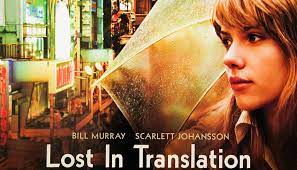Being a community manager at Bonitasoft with no technical skills
As I turn a page in my professional life, I had a look back on the last few years I spent as a Product Evangelist and Community Manager at Bonitasoft.
These 3 years have indeed represented a real evolution, and I thought it would be interesting to share this with others who, like me, are not developers or technical experts, but might still consider this type of job.
I’ll share how I think others can succeed - and thrive - in this kind of position when they’re not a developer or technical expert, but first I think it's important to explain a bit first about my first steps and how I positioned myself in relation to the expectations of users who usually deal with their peers. This way I’ll share what I learned from this experience and provide some recommendations for those who might be tempted by adventure.
The beginning… Can I do this?
I’ve been at Bonitasoft since 2013, which I joined after more than 10 years in the field of information systems. With a profile highly oriented towards quality, process, and project management, I was ready to try other departments in this software development company, and so my past experience at Bonitasoft was within the sales team, then the Customer Success department. This was a group I helped build from the ground up, and of which I later became manager.
My group was responsible for the follow-up of customers and partners in order to ensure their satisfaction and thereby their loyalty, and consequently the renewal of their software subscription.
After 5 years in this team, I wanted to get closer to the product that I have always been passionate about, while still keeping a connection with its users, including customers and partners. Bonita is an open source digital process automation (DPA) platform based on business process management (BPM) technology, with a community of users all over the world.
A great opportunity came up to join a team that was totally new to me: the product adoption team, within the marketing department.
But joining the adoption team meant becoming a Product Evangelist (and also a bit of a Developer Advocate) and taking on Community Manager for a community of developers.
Michael Levan, in his TechTarget article How to become a Developer Advocate, explains that a developer advocate or evangelist is first and foremost an engineer who "loves to write code and work with the latest technologies."
“Most of all, you love teaching technology to the people who need to learn it.
Ideally, you should enjoy the technology that you advocate for. You're not a salesperson, remember, but an advocate. When you genuinely have a passion for a tool, technology or software, the ability to share that enthusiasm will come naturally.”
In the same way, the community manager of a developer community has a key role in engaging users by providing them with useful information, solutions, offering fun as well as practical things, and highlighting the experts in the community.
It’s pretty evident from those definitions that these positions are generally held by engineers, often developers. Bonitasoft is no exception to the rule; all the former evangelists and community managers had deep technology experience, often former consultants, very knowledgeable and with a strong developer advocate profile.

So I felt some apprehension when I joined the team, even though I had a lot of ideas in terms for engagement and content to facilitate the use and adoption of our product.
I felt I could call on my experience as a process-oriented, functional user, project manager, marketing and customer relationship expert, with 16 years of experience in information systems when I started in the team.
However, my new job supporting the community, creating content, organizing events, and presenting webinars was centered around our Java-based platform which, despite an increasing evolution toward low-code, is still quite technical for a non-developer.
Here I was, expected to talk to Java front-end or full stack developers, to help them, train them and offer them relevant tutorials. I have to understand them, and I have to be credible.
Fortunately my experience in the company included following many customers with their projects and their technical challenges, and I have always liked technical environments.
Is it mandatory to be a technical expert?
At first glance
I started this new adventure with a former consultant developer, and continued alone after his departure... and I must admit, not without some difficulties.
I felt the need to prove to my colleagues, but more importantly to our users and our community, that I could do the job, even if I don't have their level of expertise. It is important to be credible, as the voice of the product to the community.
And of course it was critical to have a good understanding of the technical environment in which we interact, to be able to explain and show the value of the platform, how to get the most out of it, provide answers, and help users better understand and use it.

Do you know the movie Lost in Translation? I must confess that I have felt like Bill Murray more than once.
For example, I once worked on an answer to a community question about API calls to retrieve data about user actions in the process. I may know the product well, but I never learned to develop in Java, let alone make API calls.
How did I do it? Well, like a foreigner in an unfamiliar country, I picked up the dictionary and learned how an API in the Bonita engine works, and how the Bonita JavaDoc was put together. I asked my colleagues to validate my answer. It took me a while, but I finally got the user an answer and in doing so, I learned a technical concept that I now use all the time.
Another example of a challenge is the free training offered to the community, Bonita Camp. In this training, the foundational concepts for creating a process-based application are developed, based on theory and practical exercises.
How to answer users who have technical questions? How to help a user who is stuck on an exercise because his Groovy script is not good?
This is where my regular collaboration with the technical teams brought real added value. I created a Discord server dedicated to Bonita Camp so users can ask their questions and interact with each other, and I asked for support from the tech support and customer service teams to help answer questions on Discord during the exercises.
Key takeaway: Know the product but above all understand its users
You don't have to be a developer or very technical to lead an open source community and to produce content about a technical solution.
However, you need to have technical fiber, you need to like it, you need to like listening to a developer talking about what he does, you need to enjoy coming to understand the logic, the concepts, the why and how.
Remember a community manager or product evangelist is not there to sell the product, but to share a passion for it, to help users get the most out of it, and to openly appreciate the most active users in the community.

As Navyata Bawa1 has described, the developer advocate, evangelist or technical community manager has multiple hats. As engineers, they are always aware of technological innovations and new features to test.
But there are other very important skills that also apply to a less technical profile: someone who likes to learn, create, share, to feel that success comes from the success of users with the product - and who doesn't work in isolation, but with multiple teams.
Listening to the needs of users, a desire to help them, a willingness to deploy the internal means necessary, are key aspects of the evangelist and community manager.
What I learned and would like to share
Finally, despite some frustration at not being able to reproduce some issues, and often having to depend on others (a limit of my non-technical background), I believe that my experience in service, with the follow-up of our customers, has contributed significantly to my career growth.
This experience was extremely valuable for me and despite those initial misgivings, I really grew into it, thanks to the combination of product-users-content.
In 3 years I learned a lot about the product by using it almost daily - which, by the way, gave me the opportunity to be a "beta tester" internally and to help improve it, in addition to providing feedback from the community to the product team. I learned about the technology, its development and its methods. And as part of the marketing team, I also learned about product marketing and content creation.
It's exciting to know a product, and to write articles and make videos to highlight it, to help users understand and adopt it, to see what they can do with it, to put them in the spotlight when they contribute to the improvement or enrichment of this product.
It’s just as exciting to test a demo scenario, to prepare a video presentation of the product, to send a newsletter to the community with information about the product and technical articles in the field they might be interested in, and to work with the different technical teams of the company.
And collaboration is also the key to success, whether you're a technical expert or like me, coming from another, less deeply technical background.
My recommendations if you might be interested in a position like this one - or if you are hiring for one!
A good evangelist or community manager may not be a developer, but they love technology and understand the concepts well enough to talk about them. Don't be afraid if you are highly motivated - give it a try, you can find your place.
Product evangelist or community manager is a multi-faceted position that can be shaped by your own profile, affinities and qualities.
This kind of position needs someone to be dynamic, creative, and animated. Are you someone who likes to share with others, curious and knows how to express yourself well in writing as well as in speaking? You've got the right foundation.
Are you always listening to your users, know how to accompany them, how to value them - and that really matters to you? You’re ready to take up the challenge.
Thank you for taking time to read this article. Please let me know your thoughts in the comments below.
1. Life as a developer advocate, Navyata Bawa, Medium: https://medium.com/@navbawa/life-as-a-developer-advocate-3abbbcff7233
Special thanks
To Antoine, who trained me when I arrived in the team, patiently and methodically, on all the technical aspects, who accepted me as his partner because ultimately we were very complimentary, and that's what worked perfectly. Antoine who taught me all the tricks of Git. I love GitHub today, and I win my T-Shirt every year at HacktoberFest... Proudly “Geekette.”
To all the developers who had the patience to help me every time I wanted to make a demo and was blocked, who had the ability to explain how it works, so that I could become "the trainer" myself. (And in particular Unai, Laurent, Haris, Romain, Benjamin, Adrien, Thomas, Pablo, Anthony, Victor, Florent, Fifi) I owe a lot of beers to some of you.
To my colleagues who were so willing to take over user questions of the users of the community when I reached my limits, or who accepted my requests (targeted but regular) to help a user of the community.
To the community of developers who are a perpetual source of enrichment and learning, who have this collaborative spirit that I find so positive and special.
To Miguel and Carole who both trusted me when I took this job, and Carole who taught me a lot about marketing techniques and strategy.

Comments
Great read. Thank you so much Delphine !
I will disagree with the title of your excellent article Delphine...you had more than "no technical skillz!" But the way you describe your learning experience as a person coming in from a non-developer background is really interesting. Well done!
Thank you for being the catalyst that energized our community to grow, and grow up ... in all the best ways. We will miss this “Geekette”

Delphine I have really enjoyed your boot camp teaching ! Thank you!